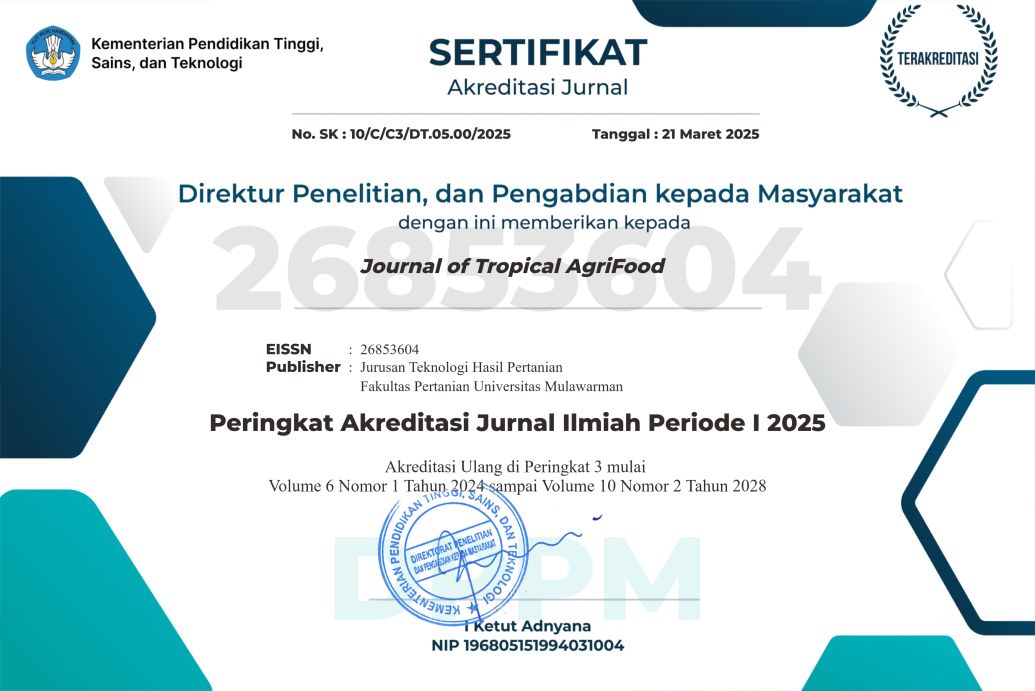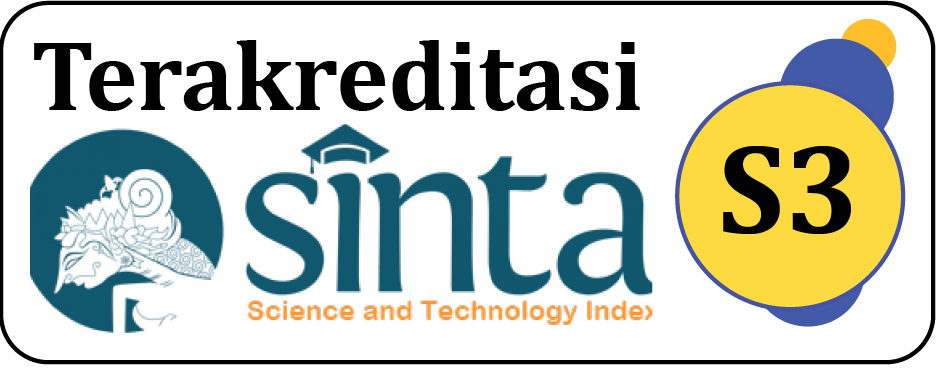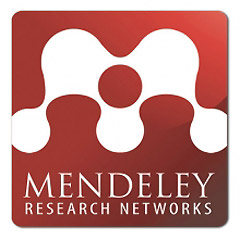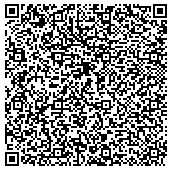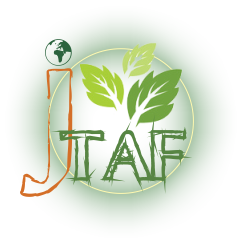- Focus and Scope
- Section Policies
- Peer Review Process
- Publication Frequency
- Open Access Policy
- Publication Ethics and Malpractice Statement
- Screening for Plagiarism
Focus and Scope
Tropical AgriFood adalah jurnal ilmiah yang menerbitkan artikel dan review dalam bidang teknologi pertanian termasuk :
- Teknik pertanian
- Ilmu dan teknologi pasca panen
- Teknologi pengolahan hasil pertanian
- Ilmu dan teknologi pangan
- Bioteknologi
- Gizi
- Herbal
- Pangan fungsional.
Tropical AgriFood is academic journal for research article and review in the field of agricultural technology including :
- Agricultural engineering
- Postharvest physiology and technology
- Agricultural product processing technology
- Food science and technology
- Biotechnology
- Nutrition
- Herbal
- Functional food.
Section Policies
Peer Review Process
Naskah yang dikirimkan dapat ditulis dalam bahasa Indonesia atau bahasa Inggris. Naskah yang diterima akan ditelaah kesesuaianya dengan focus/scope dan tata cara penulisan JTAF. Dalam waktu maksimal 2 minggu, kepada penulis akan dikirimkan informasi apakah naskahnya dapat/tidak untuk diteruskan ke penilaian oleh mitra bestari (peer-reviwer). Dewan Editor berhak meminta penulis untuk memperbaiki naskahnya sebelum meneruskannya kepada mitra bestari (peer-reviewer). Penulis dapat mengusulkan 2 orang peer-reviewer (nama, nama afiliasi institusi, dan alamat email) sebagai penelaah naskahnya. Peer-reviewer ditentukan oleh Dewan Editor dan dirahasiakan. Masa penelaahan oleh mitra bestari adalah maksimal 4 minggu per sesi penelaahan.
The article should be in Indonesian or English. It should be matched to the focus/scope of JTAF. In 2 weeks or less, the author will be informed of whether the article will be processed further. The editor has the right to ask the author(s) to rewrite the article before it is further processed. Author(s) may propose 2 names with institutional affiliation and email address as peer-reviewer candidates. Blind peer-reviewers are pointed out by the editor. Peer-reviewers have maximal 4 weeks to review the article per session.
Publication Frequency
Journal of Tropical AgriFood terbit dua kali setahun (Juni dan Desember)
Journal of Tropical AgriFood published semi-annually (June and December).
Sejak tahun 2026, Journal of Tropical AgriFood terbit Empat kali dalam setahun (Maret, Juni, September dan Desember)
Since 2026, Journal of Tropical AgriFood will be published four times a year (March, June, September, and December).
Open Access Policy
Isi jurnal ini dapat diakses secara langsung (terbuka) dengan prinsip bahwa informasi hasil penelitian dapat diakses oleh publik secara terbuka untuk mendukung pertukaran pengetahuan global yang lebih luas.
This journal provides immediate open access to its content on the principle that making research freely available to the public supports a greater global exchange of knowledge.
Publication Ethics and Malpractice Statement
Journal of Tropical AgriFood is a peer-reviewed journal. This statement clarifies ethical behaviour of all parties involved in the act of publishing an article in this journal, including the author, editor in chief, the Editorial Board, the peer-reviewer and the publisher and Co (Department of Agricultural Products Technology, Mulawarman University and Indonesian Association of Food Technologist Kalimantan Timur). This statement is based on COPE’s Best Practice Guidelines for Journal Editors.
Ethical Guideline for Journal Publication
The publication of a peer-reviewed article in of Journal of Tropical AgriFood is an essential building block in the development of a coherent and respected network of knowledge. It is a direct reflection of the quality of the work of the authors and the institutions that support them. Peer-reviewed articles support and embody the scientific method. It is therefore important to agree upon standards of expected ethical behaviour for all parties involved in the act of publishing: the author, the journal editor, the peer reviewer, the publisher, and the society.
Department of Agricultural Products Technology, Mulawarman University jointly with Indonesian Association of Food Technologist (PATPI) Kalimantan Timur as the publisher of Journal of Tropical AgriFood takes its duties of guardianship over all stages of publishing extremely seriously and we recognize our ethical and other responsibilities. We are committed to ensuring that advertising, reprint or other commercial revenue has no impact or influence on editorial decisions. In addition, Faculty of Agriculture Mulawarman University and Editorial Board will assist in communications with other journals and/or publishers where this is useful and necessary.
Publication decisions
The editor of Journal of Tropical AgriFood is responsible for deciding which of the articles submitted to the journal should be published. The validation of the work in question and its importance to researchers and readers must always drive such decisions. The editors may be guided by the policies of the journal's editorial board and constrained by such legal requirements as shall then be in force regarding libel, copyright infringement and plagiarism. The editors may confer with other editors or reviewers in making this decision.
Fair play
An editor at any time evaluates manuscripts for their intellectual content without regard to race, gender, sexual orientation, religious belief, ethnic origin, citizenship, or political philosophy of the authors.
Confidentiality
The editor and any editorial staff must not disclose any information about a submitted manuscript to anyone other than the corresponding author, reviewers, potential reviewers, other editorial advisers, and the publisher, as appropriate.
Disclosure and conflicts of interest
Unpublished materials disclosed in a submitted manuscript must not be used in an editor's own research without the express written consent of the author.
Duties of Reviewers
Contribution to Editorial Decisions
Peer review assists the editor in making editorial decisions and through the editorial communications with the author may also assist the author in improving the paper.
Promptness
Any selected referee who feels unqualified to review the research reported in a manuscript or knows that its prompt review will be impossible should notify the editor and excuse himself from the review process.
Confidentiality
Any manuscripts received for review must be treated as confidential documents. They must not be shown to or discussed with others except as authorized by the editor.
Standards of Objectivity
Reviews should be conducted objectively. Personal criticism of the author is inappropriate. Referees should express their views clearly with supporting arguments.
Acknowledgement of Sources
Reviewers should identify relevant published work that has not been cited by the authors. Any statement that an observation, derivation, or argument had been previously reported should be accompanied by the relevant citation. A reviewer should also call to the editor's attention any substantial similarity or overlap between the manuscript under consideration and any other published paper of which they have personal knowledge.
Disclosure and Conflict of Interest
Privileged information or ideas obtained through peer review must be kept confidential and not used for personal advantage. Reviewers should not consider manuscripts in which they have conflicts of interest resulting from competitive, collaborative, or other relationships or connections with any of the authors, companies, or institutions connected to the papers.
Duties of Authors
Reporting standards
Authors of reports of original research should present an accurate account of the work performed as well as an objective discussion of its significance. Underlying data should be represented accurately in the paper. A paper should contain sufficient detail and references to permit others to replicate the work. Fraudulent or knowingly inaccurate statements constitute unethical behaviour and are unacceptable.
Data Access and Retention
Authors are asked to provide the raw data in connection with a paper for editorial review, and should be prepared to provide public access to such data (consistent with the ALPSP-STM Statement on Data and Databases), if practicable, and should in any event be prepared to retain such data for a reasonable time after publication.
Originality and Plagiarism
The authors should ensure that they have written entirely original works, and if the authors have used the work and/or words of others that this has been appropriately cited or quoted.
Multiple, Redundant or Concurrent Publication
An author should not in general publish manuscripts describing essentially the same research in more than one journal or primary publication. Submitting the same manuscript to more than one journal concurrently constitutes unethical publishing behaviour and is unacceptable.
Acknowledgement of Sources
Proper acknowledgement of the work of others must always be given. Authors should cite publications that have been influential in determining the nature of the reported work.
Authorship of the Paper
Authorship should be limited to those who have made a significant contribution to the conception, design, execution, or interpretation of the reported study. All those who have made significant contributions should be listed as co-authors. Where there are others who have participated in certain substantive aspects of the research project, they should be acknowledged or listed as contributors. The corresponding author should ensure that all appropriate co-authors and no inappropriate co-authors are included on the paper, and that all co-authors have seen and approved the final version of the paper and have agreed to its submission for publication.
Hazards and Human or Animal Subjects
If the work involves chemicals, procedures or equipment that have any unusual hazards inherent in their use, the author must clearly identify these in the manuscript.
Disclosure and Conflicts of Interest
All authors should disclose in their manuscript any financial or other substantive conflict of interest that might be construed to influence the results or interpretation of their manuscript. All sources of financial support for the project should be disclosed.
Fundamental errors in published works
When an author discovers a significant error or inaccuracy in his/her own published work, it is the author’s obligation to promptly notify the journal editor or publisher and cooperate with the editor to retract or correct the paper.
Screening for Plagiarism
To check the possibility of plagiarism, we use Anti-Plagiarism Software Plagiarism checker X to check the authenticity of the article with maximum similarity score 25%. | |
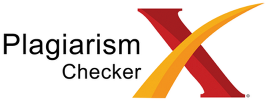 | |

